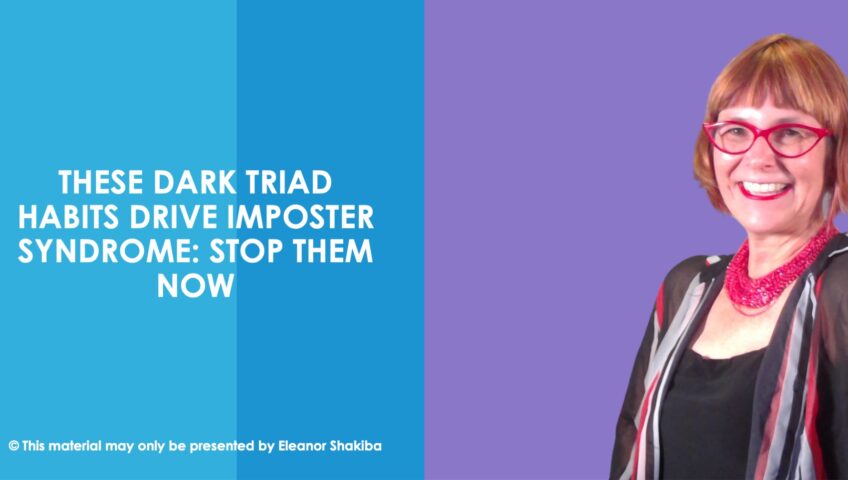Imposter syndrome puts a grey filter over your success. It dulls your confidence and washes out your brightest achievements. Ironically, some of the habits we hope will quell imposter syndrome actuallymake it worse. The fact is this: beating imposter syndrome means ditching habits that feel normal and natural to you as a success-minded professional. Habits such as planning and goal setting, critical thinking and dedicating the bulk of your time to work (which, of course, you claim to love so much that it feels like play).
Over-planning
My Myers Briggs personality type is INFJ, so I love a good plan. But even I must admit that the planning habit can go too far. If you’re making contingency plans to back up contingency plans, it’s time to hit pause.
The problem with over-planning is it can prompt anxiety, especially if you combine it with attempting to predict and prevent worse case scenarios. So, you need to stop doing it. Switch off your busy brain by using NLP trance techniques, getting into the great outdoors or chilling out instead of stressing out.
Overworking
Many high achievers do this because they love their work. This makes it easier to go into a flow state and lose track of time. However, hard work is like chocolate consumed in small doses – it elevates and energises. But if you indulge in it every day, you’ll soon get sick of it.
Breaking the habit of overworking is easier if you take these three steps:
- Lower your standards. Perfectionism is the leading cause of overwork because it results in poor use of your time and energy.
- Learn to delegate and outsource. Just because you CAN do something doesn’t mean you SHOULD.
- Take up a new hobby. Some people overwork to combat boredom. Don’t YOU be one of them.
Overthinking
Second-guessing every decision. Mulling over pros and cons. Asking endless ‘what if’ questions. These are all signs you’re mired in Dark Triad habit number three: overthinking.
Yes, competent professionals think critically. But no, that doesn’t mean you should dissect every idea or question every action. Let’s face it, strong leadership requires deep and authentic confidence in your decision-making skills. You need to develop these skills, but you don’t need to do this alone.
Indeed, in 2018, researchers studied the way brain activity related to confidence when people are making decisions. It turned out that activity in the ventromedial prefrontal cortex was a reliable indicator of confidence.
Why is this interesting? Because the same brain region is associated with reward processing, emotion regulation, empathy and social cognition, which might just hint at why it’s easier to make complex decisions when talking things through with a coach, mentor or trusted advisor.
